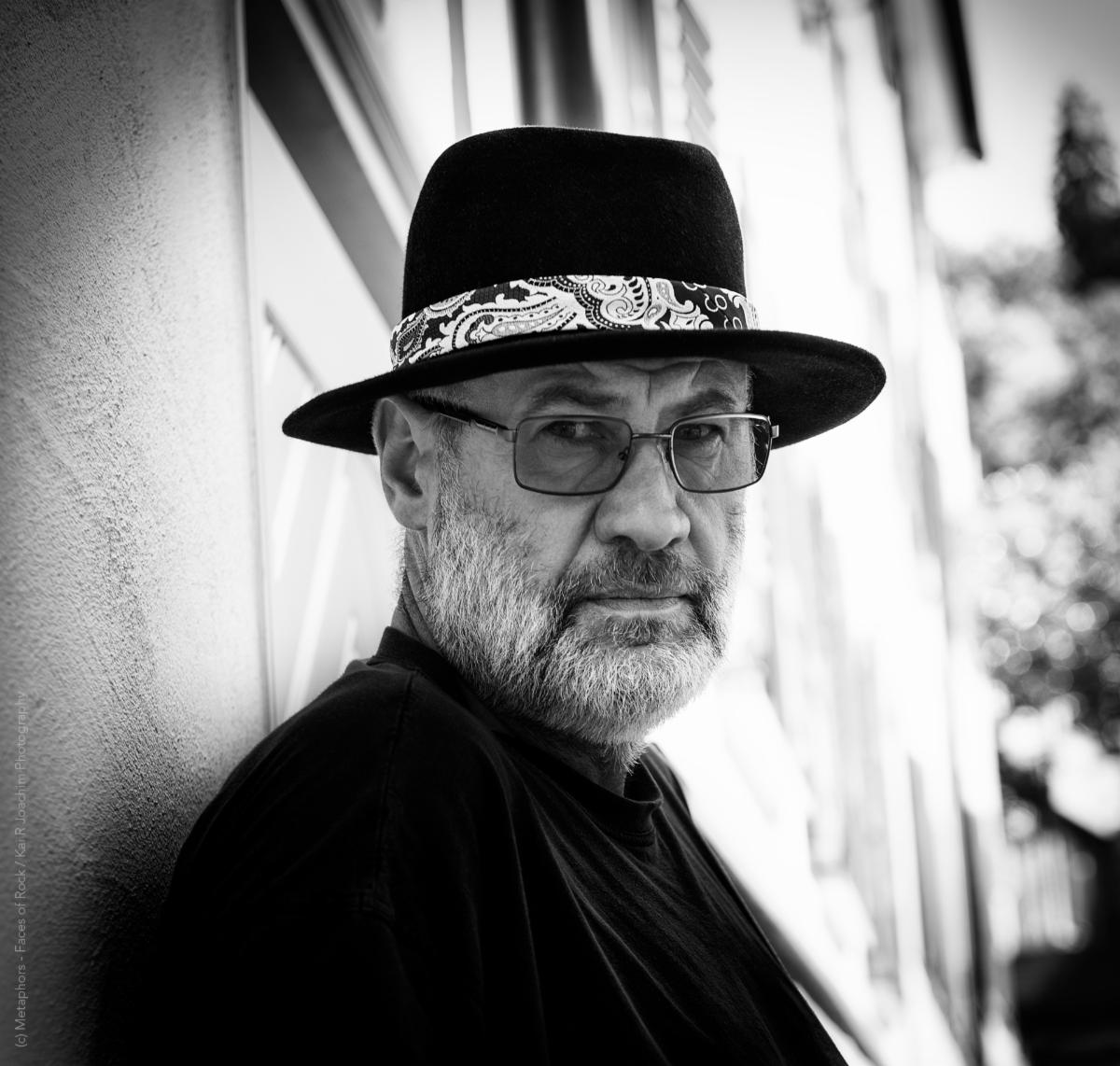MARILLION’S DEREK DICK – “FISH”

Born in 1958 in Edinburgh, Derek William Dick acquired the nickname “Fish” years later after developing a reputation for staying in a bath for lengthy amounts of time. It was Fish who joined Marillion in January 1981 after passing on a cassette tape to the band. Fish’s audition in January 1981 was a formality, and the band not only had a lyricist and singer but also more importantly a charismatic front man. They had also taken on someone with drive, ambition, and a vision. Over the next 3 months Fish had contributed a number of lyrics and all the existing songs had been dismantled and rewritten in this new line up which consisted of Fish and Steve, Diz Minnitt on bass, Brian Jelliman on keyboards and founding member Mick Pointer on drums.
Marillion’s’ fan base was growing as they were offering something different from the new wave of British Heavy Metal bands who were darlings of the rock press and the synthesizer-based pop bands ruling the charts. The last rites of Progressive rock had been allegedly written by the music media when punk rock swept the headlines but there was a vast element of fans who still followed the progressive rock genre and Marillion were becoming their new heroes.
In March ‘82 Fish booked a tour of Scotland helping the band increase their fan base, with the help of fantastic live reviews. In 1982, they brought on manager John Arnison to get them over the line and find them a record deal that would provide new opportunities. At the Reading festival that summer, Fish announced on stage that they were signing to EMI Records. Their first release was an EP which was followed by their first full length album, Script for a Jester’s Tear. The album entered at number 7 and was in the album charts for 31 weeks. After extensive touring, including dates in the U.S., they started writing their second album – Fugazi – which went to the top 5 on the UK charts. Writing sessions were squeezed into touring schedules that were financially supporting the band and by the end of the year they had written most of the first side of their third album that Fish had named Misplaced Childhood. The first single “Kayleigh” shot to number 2 and marked the first time one of the band’s singles received heavy radio play and translated across to the wider public. The success of the single reverberated around Europe and Marillion were finally achieving the recognition and success they deserved. The album went into the UK charts at number 1, number 3 in Germany, 6 in Holland and was top 20 across the rest of Europe. Their live reputation grew, and the band ascended to yet another level of success resulting in excessive touring schedules that were starting to take a toll. 1986 was dominated by live performances and writing sessions for the next album were snatched and interspersed in a myriad of touring commitments. The band’s next album, Clutching at Straws came in 1987 and soared to the top 5in the UK, peaking at number 2. Marillion continued to tour, but live performances would come to a halt in the spring of 1988. Fish performed his final show with the band at the Fife Aid Festival in July of that year. In September, he would leave the band entirely.
Soon after leaving the band, Fish took on new management and moved back home to Scotland from South England where he’d been living since joining Marillion in 1981. He set himself up in a farmhouse where he continued working on new music and would go on to release several solo projects. His last album Weltschmerz was released in 2020 and is held by many to be his best album to date.
